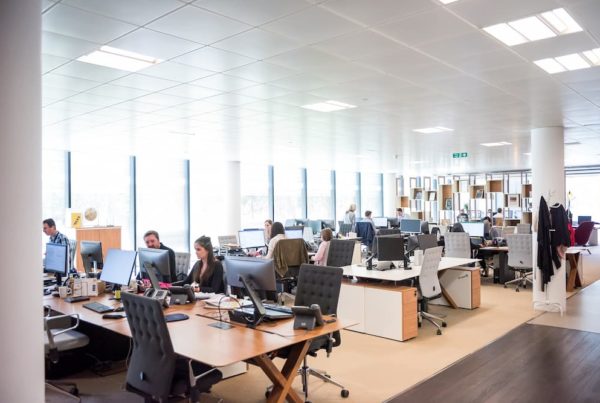If you’re a working parent of young children, the concept of parental leave in Ireland seems like a good one. Parents in full-time employment enjoy a range of leave entitlements, with maternity, paternity, and adoptive leave being the most generous. Parental leave is distinct from these, offering workers with young children the chance to spend up to 26 weeks away from their post as they see to childcare duties.
The Irish government passed the Parental Leave Act in 1998, although it has been amended several times since. While current legislation stipulates that employees can’t claim an income or any other benefits during their leave, there are ways to safeguard your social insurance record and during your time away from work.
Are you unsure whether you qualify for parental leave? Wondering how much leave you can take or whether your pension will be affected? Read on for everything you need to know.
What is parental leave?
 If you’re a parent, you automatically qualify for parental leave in Ireland. It entitles you to unpaid leave from your job that you can use to take care of your child. You’re entitled to parental leave for all eligible children. In other words, you can take up to 26 weeks of parental leave for each child.
If you’re a parent, you automatically qualify for parental leave in Ireland. It entitles you to unpaid leave from your job that you can use to take care of your child. You’re entitled to parental leave for all eligible children. In other words, you can take up to 26 weeks of parental leave for each child.
In most cases, you’ll be expected to have worked for at least 12 months for your current employer before you can qualify for this type of statutory leave.
However, where the employee has more than three months but less than one year’s service, and where the child is approaching the age threshold, the employee will be entitled to one week’s leave for every month of continuous employment completed with the employer.
Some strict conditions apply, with the most important being:
- You must be the parent, adoptive parent, or in a position of ‘loco parentis’, to the child the parental leave applies to.
- You must inform your employer of your wish to take parental leave at least 6 weeks before the start date of the requested leave period.
- Parental leave needs to be taken in one continuous block, or smaller ones lasting a minimum of 6 weeks each.
- If the leave is taken in this way, there must be at least ten weeks between each separate period.
- The leave may also be broken up over a period with the employer’s consent.
While some employers may be more flexible when it comes to parental leave entitlements and offer more generous terms to employees, this is at their sole discretion. If your employment contract doesn’t clearly state an incentive, don’t expect any special treatment when applying for parental leave.
What is the difference between parent’s leave and parental leave?
Parental leave entitlement in Ireland allows both parents and guardians to take up to 26 weeks of unpaid leave before their child’s 12th birthday or before the child reaches 16 years of age in the case of a child with a disability.
As for parent’s leave, the Parent’s Leave and Benefit Act 2019 amended by the Family Leave and Miscellaneous Provisions Act 2021 provides nine weeks statutory leave from 01 August 2024 for a relevant parent within the first two years of a child’s life, or in the case of adoption, within two years of the placement of the child with the family. Parent’s leave is available to each parent.
Another big difference between these two types of statutory leave is that parent’s leave is paid, while parental leave isn’t. While employers don’t pay employees taking parent’s leave themselves, workers do qualify for the Parent’s Benefit. Everyone eligible for this welfare payment receives the same standard rate.
With parental leave, things are much different. Employees who’ve chosen to use their leave allowance receive zero benefit payments for the duration of their parental leave.
How long is parental leave in Ireland?
You can currently take up to 26 weeks of unpaid leave for each child you have. Where an employee has more than one child, parental leave is limited to 18 weeks in a 12-month period. This can be longer if the employer agrees.
Have you recently welcomed twins? In the case of multiple births, you are entitled to 26 weeks of parental leave for every one of your children. The 18-week annual limitation does not apply in this case.
Is parental leave paid in Ireland?
Your employment rights don’t change when you request parental leave. After your leave period is over, you’re free to return to your post, bringing a sense of reassurance and workplace wellbeing. Sadly, you won’t receive salary or wages in your absence.
This isn’t the case with parent’s leave, which entitles employees to claim Parent’s Benefit. This benefit is paid weekly, with everyone receiving the same basic rate – currently €289. To qualify, you’ll need to have made sufficient PRSI contributions.
How to apply for parental leave?
Thinking about using up your parental leave allowance? As long as you’re eligible, you can apply by sending a written notice to your employer. This written notice should include:
- The date on which you would like your parental leave period to commence.
- How much of your parental leave allowance you would like to use up in one block?
- If you plan on splitting your allowance into multiple blocks, outline the details here.
- The employee’s signature.
You’ll need to send this notice to your employer no later than 6 weeks before the start date you have requested. Once they’ve received your request, employers must review it. If they agree to your request, you’ll both have to sign a document confirming the agreement. This should make clear the specifics of your parental leave. It needs to be completed and signed by both parties no later than 4 weeks before your leave period is set to begin.
Does parental leave affect your pension?
While your employment rights are unaffected, parental leave doesn’t come with any remuneration. However, you can keep your social insurance record intact. If your employer has registered your leave with the Department of Social Protection’s Client Eligibility Services, you’ll get credited PRSI contributions. Pension contributions are not made by the employer or employee during the period of parental leave. However, this won’t impact your pension service record. You also enjoy other perks. You can accrue annual leave in Ireland during parental leave, as well as public holiday entitlement. These can be added to your leave allowance when you finally return to work.
What age does parental leave stop?
The parental leave age limit is generous. You can take your leave allowance for every child up until their 12th birthday. However, some exceptions apply.
Is your child adopted? If they were aged between 10-12 when the adoption was finalised, you can take your leave as much as 2 years after the end of the process. Special rules also apply to disabled children or those suffering from chronic long-term illness. In these cases, you can claim your leave up until your child reaches the age of 16.
In rare scenarios, some people are granted an extension if illness or injury has prevented them from taking their parental leave before their child reaches the upper age limit.
Can an employee be refused parental leave?
If you’re entitled to parental leave, an employer has no grounds to refuse your request. On occasion, they might disagree with you regarding your eligibility. If they refuse you based on this, they need to notify you about it in writing.
If you receive one of these refusal notices, you have 7 days to prepare your reply. In this reply, you’ll need to make it clear why you’re eligible and why your leave request should be accepted. Employers can still choose to refuse the request, but they’ll need to provide clear reasoning behind their decision.
Employers can also opt to postpone someone’s parental leave. Postponement can last for as long as 6 months. However, they’ll need to make it clear that they intend to do this before finalising an agreement and signing a confirmation document. Once it has been signed, they can’t postpone your parental leave without your permission.
Most of the time, an employer can only postpone your leave once. Technically, they can do so again, but they need to provide you with very specific reasons as to why. These can include:
- No cover available
- The nature of your position and responsibilities
- Work volumes and seasonal variations
- Other employees are taking parental leave at the same time
Anyone entitled to parental leave can take it, even if their initial request is postponed. However, employers have the right to cancel your leave if they suspect you’re using it to do anything other than care for your child.
Why parental leave is more important than ever
While parental leave doesn’t offer the same financial security as parent’s leave, it’s still a generous initiative for working parents. Temporarily sacrificing income and pension contributions is a bitter pill to swallow, but the time that parents get to spend with a young family is priceless. It is rare for employers to refuse or postpone a request for parental leave more than once. For employers, parental leave is an essential benefit that can boost morale, inspire goodwill towards their employees, and encourage loyalty.
Get advice on parental leave with The HR Suite
If you’re an employer, making sense of parental leave entitlements can be confusing. Without being familiar with the latest legislation, knowing when to accept, refuse or postpone someone’s parental leave can seem impossible. Need some help from an experienced Senior HR consultant? The HR Suite has the insights you need. Our industry-leading HR outsourcing services will help support your in-house teams, while our experienced team of employment law consultants give you the guidance you need as a business.


![Parental Leave in Ireland – A Guide for Irish Employers [Updated 2025]](https://thehrsuite.com/wp-content/webpc-passthru.php?src=https://thehrsuite.com/wp-content/uploads/2023/12/edward-cisneros-5EnPNw_9xSc-unsplash-1.jpg&nocache=1)





